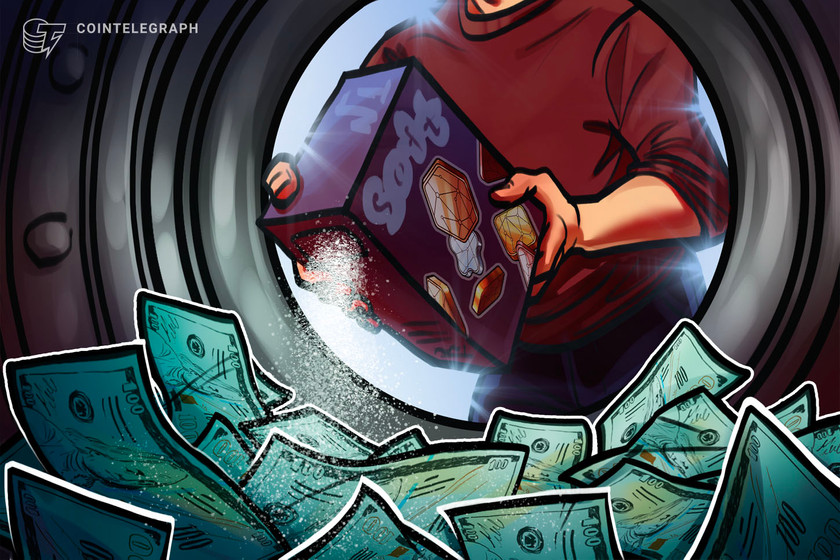Are NFTs being used for money laundering? Yes they are, claims Mr. Whale

NFT’s could be a vehicle to legitimize ill-gotten gains for the crypto elite.
The nonfungible token space has been a hive of activity over the past month or so but there could be more going on than meets the eye as concerns emerge over the sector’s involvement in money laundering and tax evasion.
Crypto investor and uber-bearish crypto commentator Mr. Whale has drawn attention to the darker side of the burgeoning NFT space. In a blog post earlier this week, the Bitcoin early adopter attributed the popularity and notoriety of NFTs to their ability to facilitate money laundering and tax evasion for the wealthy.
“Behind the facade of a bunch of bored rich dudes buying digital artwork at insanely high prices lays a sinister and twisted money laundering scheme for crypto’s ultra-rich elites to make their illegal profits look legal.”
He argues that because art is so subjective and in the eye of the beholder, NFT’s often do not face scrutiny from lawmakers and regulators. This aspect of art is a primary reason why it has been used as a vehicle for illicit financial flows for centuries, he added.
The actual laundering of money aspect is quite simple according to Mr. Whale. Buying a NFT from oneself using illicit funds is an easy way to move money while claiming the funds were used for a legitimate art purchase and avoiding taxes in the process. An example was demonstrated by former USA Today journalist, Isaiah McCall, on his blog earlier this year where he explained the process:
“If you have $1 million in illegal money, you would spend $1 million on your own NFT. You can do this yourself or use a trusted third-party account. Then you resell the trash for nothing and bank the profits.”
Cat Graffam, an adjunct faculty member in the Art & Design department at Lasell University, Massachusetts, told Mr Whale that NFTs are already being used to launder money in similar ways conducted with physical art. She added that they offer some advantages, elaborating:
“It could possibly be even easier to move dirty funds around because it is tied to a decentralized currency and the fact that there are no physical artworks to have to transport or store in off-shore tax haven warehouses.”
Related: Clever user makes $80K profit in CryptoPunk ‘smash and grab’
For these reasons, the NFT scene is likely to attract the attention of regulators and tax authorities according to both. Mr. Whale stated he has no doubt that governments will end up cracking down on this trend, adding “while there are a number of NFT exchanges without KYC/AML regulations, this will definitely change in the future.”
As reported by Cointelegraph earlier this year, investors who use the profits from their crypto holdings to purchase NFTs will still likely have to pay capital gains tax when filing their taxes in the United States.



